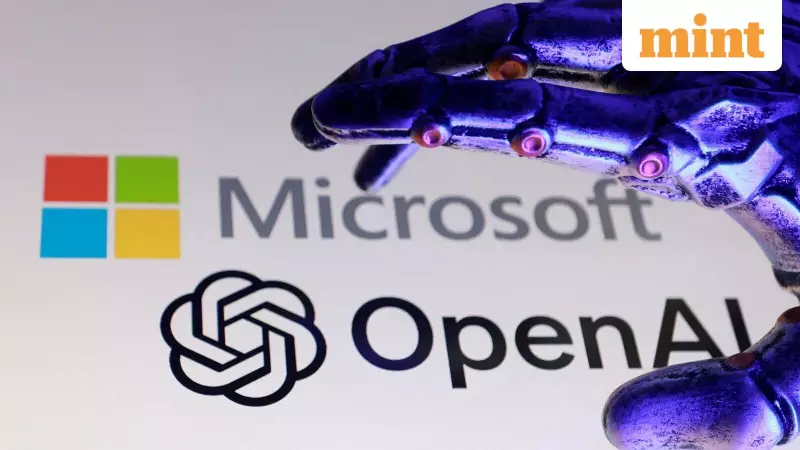
Microsoft is making an unprecedented $34 billion bet on artificial intelligence infrastructure, with its latest marvel being a massive AI "super factory" in Atlanta that represents the cutting edge of computing technology. The tech giant's aggressive expansion comes as demand for AI processing power reaches fever pitch across the industry.
The Atlanta AI Powerhouse
Nestled across 85 acres in Atlanta, Microsoft's new AI training facility spans more than 1 million square feet of two-story structures specifically engineered for artificial intelligence workloads. This isn't just another data center - it's what Microsoft describes as a "super factory" designed to seamlessly integrate with the company's global Fairwater network of AI centers.
The Atlanta site will house hundreds of thousands of Nvidia graphics processing units (GPUs), the workhorse chips that power today's most advanced AI models. What makes this facility particularly innovative is its two-story construction, which Microsoft says enables better networking capabilities and significantly reduced latency for AI computations.
Revolutionary Cooling and Connectivity
One of the standout features of the Atlanta super factory is its novel liquid-cooling system that allows the company to pack GPUs closely together while maintaining optimal operating temperatures. Despite the massive computing power concentrated in one location, Microsoft claims the system uses approximately as much water annually as 20 average U.S. households.
The connectivity aspect is equally impressive. Microsoft is deploying 120,000 miles of fiber-optic cables to link its Fairwater project, creating what the company describes as a "cutting-edge express lane dedicated to AI traffic" where data travels at nearly the speed of light between locations.
Meeting Explosive AI Demand
Microsoft's massive infrastructure investment - more than $34 billion in capital expenditures during its fiscal first quarter alone - reflects the overwhelming demand for AI computing capacity. The company has stated it will continue increasing infrastructure investments throughout the next fiscal year as it works to double its total data-center footprint over the coming two years.
According to Alistair Spears, Microsoft's general manager of Azure infrastructure, the company now has "more demand than it can keep up with" after earlier canceling some data center leases that Spears characterized as "shifting" in capacity planning.
The Fairwater network already counts OpenAI as one of its largest customers, along with other prominent AI players including France's Mistral AI and Elon Musk's xAI. Microsoft also uses the infrastructure for training its own proprietary AI models.
Microsoft isn't alone in this infrastructure arms race. The tech industry is pouring a combined $400 billion into AI efforts this year, with Amazon.com recently opening a 1,200-acre hub in Indiana as part of its Project Rainier that will consume 2.2 gigawatts of energy. Meta Platforms, Oracle, and other tech giants also have massive new facilities in development.
To manage the enormous power requirements, Microsoft is employing a distributed strategy for its Fairwater network, which the company says will operate at "multigigawatts" scale. This approach helps prevent overloading any single utility grid or overburdening individual communities while allowing for continued expansion to meet the insatiable demand for AI computing resources.






